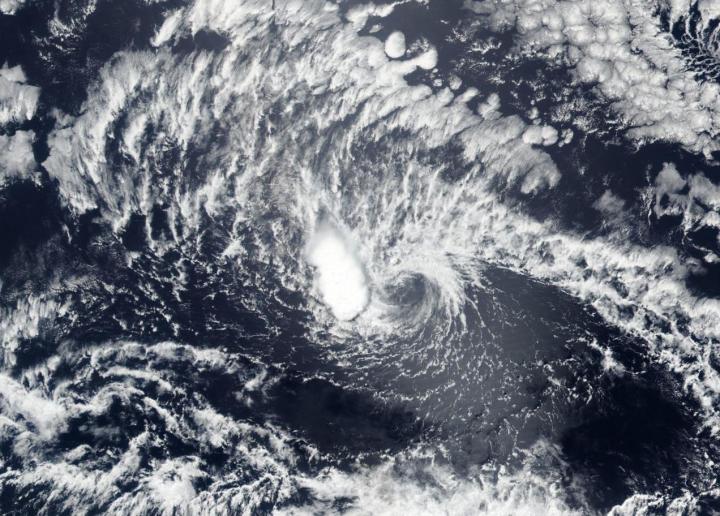
IMAGE: NASA-NOAA’s Suomi NPP satellite provided this image of former Tropical Cyclone Boris as it weakened to a remnant low-pressure area on June 29, 2020 in the Central Pacific Ocean. The…
view more
Credit: Credit: NASA Worldview, Earth Observing System Data and Information System (EOSDIS)
NASA-NOAA’s Suomi NPP satellite imagery provided a look at the end of the second named tropical cyclone of the Eastern Pacific Ocean’s 2020 Hurricane Season.
Tropical Cyclone Boris formed in the Eastern Pacific Ocean on Wednesday, June 24 and by early on Sunday, June 29, the storm had become a remnant low-pressure area.
At NASA’s Goddard Space Flight Center in Greenbelt, Md., an animation of satellite imagery was created from NASA Worldview, Earth Observing System Data and Information System (EOSDIS). The animation used imagery from the Visible Infrared Imaging Radiometer Suite (VIIRS) instrument aboard NASA-NOAA’s Suomi NPP satellite and ran from June 26 to June 29, 2020. The animation showed the progression and weakening of Tropical Cyclone Boris as it crossed from the Eastern Pacific Ocean into the Central Pacific Ocean.
The final advisory issued by NOAA’s National Hurricane Center came on Saturday, June 27 at 11 p.m. EDT. At that time, center of Post-Tropical Cyclone Boris was located near latitude 12.1 degrees north and longitude 142.0 degrees west. That was about 1,015 miles (1,635 km) east-southeast of Hilo, Hawaii. The post-tropical cyclone was moving toward the west-southwest near 8 mph (13 kph). Maximum sustained winds were near 30 mph (45 kph) and weakening.
NASA-NOAA’s Suomi NPP satellite provided an image of former Tropical Cyclone Boris as it weakened to a remnant low-pressure area on June 29. In the image, the circulation center can be seen surrounded by wispy clouds with the exception of a small area of thunderstorms on the western side of the circulation.
The remnant low is expected to dissipate by June 30.
Tropical cyclones/hurricanes are the most powerful weather events on Earth. NASA’s expertise in space and scientific exploration contributes to essential services provided to the American people by other federal agencies, such as hurricane weather forecasting.
###
TDnews














